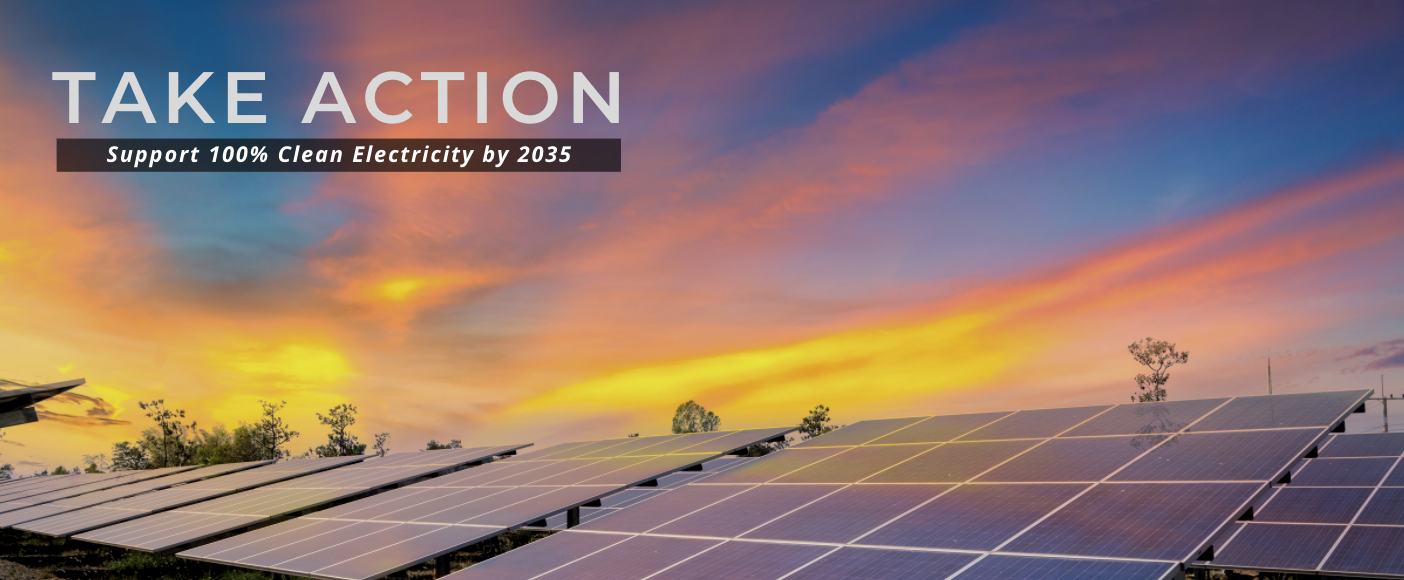A new report finds that a national 80% clean electricity standard by 2030 would save many lives, make Americans a lot healthier, and save us lots of money through cleaner air.
Chris Carnevale | July 15, 2021 | Climate Change, Energy PolicyThe research, conducted by the Clean Energy Futures project–a team with researchers from Georgia Institute of Technology; Syracuse University; Harvard T.H. Chan Center for Climate, Health, and the Global Environment; and Resources for the Future–finds that an 80% clean electricity standard (CES) by 2030 would prevent hundreds of thousands of premature deaths and deliver well over a trillion dollars’ worth of health and climate benefits between now and 2050.
Air pollution generated by burning fossil fuels like coal and fossil gas for power and transportation contributes to serious health problems, including asthma attacks, heart attacks, respiratory illness, pre-term births, low birth weight, and even premature deaths. By modeling a phase down of fossil fuel power, the researchers found that reaching 80% clean power by 2030 would avoid 317,500 premature deaths over the next 30 years in the lower 48 United States, growing from 9,200 premature deaths avoided in 2030 to 17,000 in 2050, from reduced air pollution exposure. Southeastern states are among those with the greatest number of avoided premature deaths: Florida, North Carolina, Tennessee, and Georgia are all among the top 10 states for premature deaths that would be avoided if a policy like a clean electricity standard is enacted.
The researchers found that the economic savings associated with decreases in air pollution, and thereby illness and premature deaths, as a result of transitioning to 80% clean power would be $1.13 trillion dollars from 2020 to 2050, and the savings in climate costs would be $673 billion.
The report authors acknowledge that there will be a monetary cost to getting to 80% clean power by 2030. The cost they find is surprisingly low (an increase of just 13% compared to business-as-usual, since savings in fuel costs offset most of the cost of new capital) at an estimated price tag of $342 billion. Yet at this price point, the economic benefits of just health and climate far outweigh the costs, not to mention the jobs created and other potential benefits of the economic activity entailed in a clean energy transformation.
Cleaner air from transitioning to clean power would benefit all racial and ethnic groups, however the researchers found that “non-Hispanic Black people are estimated to experience the largest reductions in average population-weighted exposure in absolute terms” to ozone and fine particulate matter. Along similar lines, other research has found that the public health impacts of climate change fall disproportionately heavily on children, older adults, low-income communities, some communities of color, and those experiencing discrimination, meaning that addressing those climate risks by transitioning to clean energy would help build social and racial equity.
The report concludes with an excellent summary:
The estimated net benefits of our illustrative 80×30 CES are large, widespread, and far outweigh the costs. Even with conservative assumptions, the estimated present value climate benefits of $637 billion outweigh the estimated policy costs of $342 billion (2019 U.S. dollars). The additional health benefits would be immediate, widespread, and substantial. We estimate 9,200 lives saved in 2030 alone and an estimated 317,500 lives saved from 2020 to 2050 with $1.13 trillion in cumulative health benefits, leading to net benefits of $1.43 trillion. Air quality-related health benefits are broadly distributed across all states in the coterminous U.S.
This Clean Energy Futures report by public health experts adds to the growing library of expert analysis that shows that a strong CES would yield enormous benefits for Americans, including better health, economic benefits, good jobs, and saved lives.
With such a great opportunity, a CES of 100% by 2035 is a top priority for us at SACE. Please join us in our call for a strong CES and use the form here to contact your members of Congress today in support of a 100% CES by 2035!
